We are first introduced to a trio of medical professionals, Dr. Arthur McPherson (Donald Moffat), Dr. John Ellis (Richard Dysart) and Ralph Friedman (James Sikking) as they discuss the use of a computer implant to curb violent behaviour caused by brain damage, their key subject being one Harry Benson (George Segal), an extremely intelligent computer scientist who suffers from a unique form epilepsy. Whenever a seizure occurs he blacks out only to awaken hours later with no memory of the violent acts he has committed. One dissenting opinion is raised that because Harry also suffers from the delusion that computers will "rise up against humanity" – a distinctly strange paranoia for a computer designer to have – that literally putting a computer inside Benson's head could cause adverse psychological reactions. I’d certainly considered that a very valid concern, and how they got Harry to even consider this particular procedure is never even addressed, but this view is “pish poshed” and they go ahead with the surgery.
"We can rebuild him. We have the technology. We have the capability to build the world's first nonviolent man."
I do hope you like watching surgery because this particular sequence lasts an interminable twenty minutes, it just goes on for fucking ever, and nothing really dramatic happens, we just get endless shots of Richard Dysart sticking little metal probes into George Segal’s brain. I may not be an expert in what makes scintillating drama but this is surely not it. Now, eventually, the surgery does end – thank god – and we get Benson's psychiatrist, Janet Ross (Joan Hackett), sitting down with him as technicians then trigger electrical impulses via the various implants in his brain to see which one will stop the violence-inducing seizures.Unfortunately, good ole Harry’s brain becomes addicted to these electrical impulses, with the seizures being initiated at increasingly shorter intervals, and this eventually results in a continuous series of impulses that will actually trigger the blackouts they were installed to prevent in the first place. Then in a rather leftfield moment Harry gets help from a stripper girlfriend (Jill Clayburgh) - because why not - to escape from the hospital and which leads to the doctors scrambling around in a vain attempt to track him down before he has his next violent inducing blackout.
Needless to say, they don’t find him in time.
The Terminal Man is not a terrible adaptation of Crichton’s novel as it is fairly faithful to the source material – they even fired Crichton from screenplay duties because his script did not follow the novel closely enough – but director Mike Hodges brought a very antiseptic feel to the proceedings and almost every character seems to be completely divorced of emotions. You really shouldn't have a horror/science fiction/thriller where everyone looks as emotionally engaged as a person waiting in line at the DMV, and when we do get Harry’s violent attacks there about as bland and boring as the rest of the film. I’ve seen more thrilling moments on episodes of Goosebumps.When we eventually get the film's big moment, where Harry breaks into Janet’s home and we finally get to see the good doctor lose a bit of her composure the scene is still a lethargic mess and is about as thrilling as visit by a Jehovah Witness, but at least it does give us a break from viewing more medical procedures. What is strange here is that in the book Janet used her microwave oven to disrupt the atomic pacemaker, the one that powers his implanted computer, while in the movie he comes at her and she simply stabs him with a kitchen knife before locking herself in the bathroom. That they decided to diverge from the source material in this area is truly bizarre as a psycho attacking a woman with a knife is about as unoriginal as one can get.

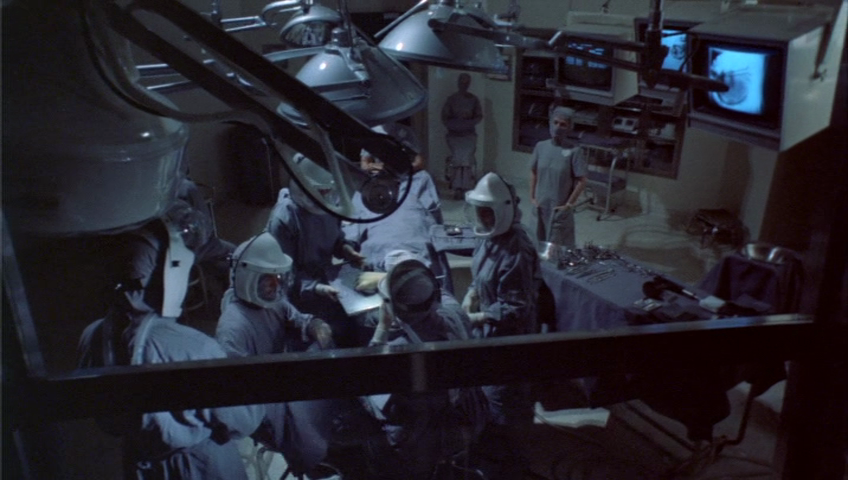
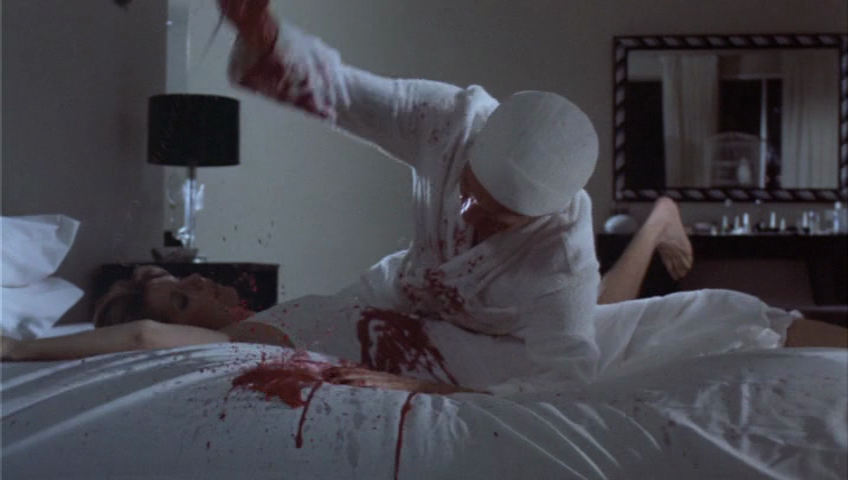
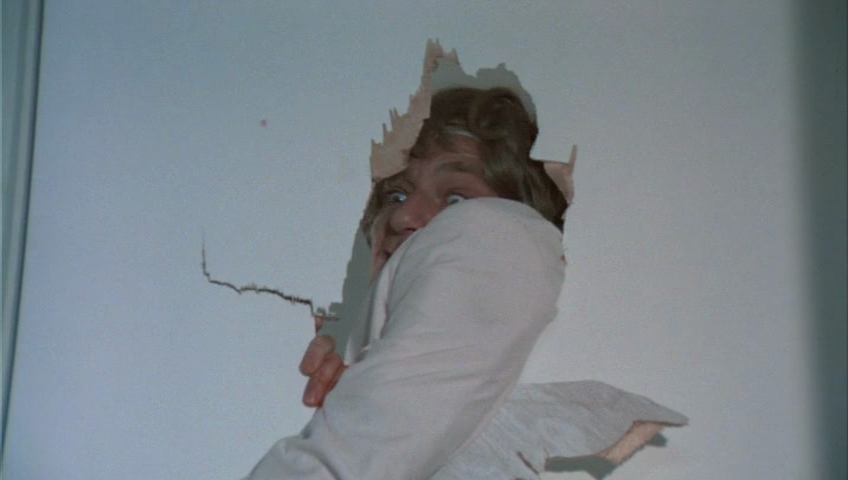
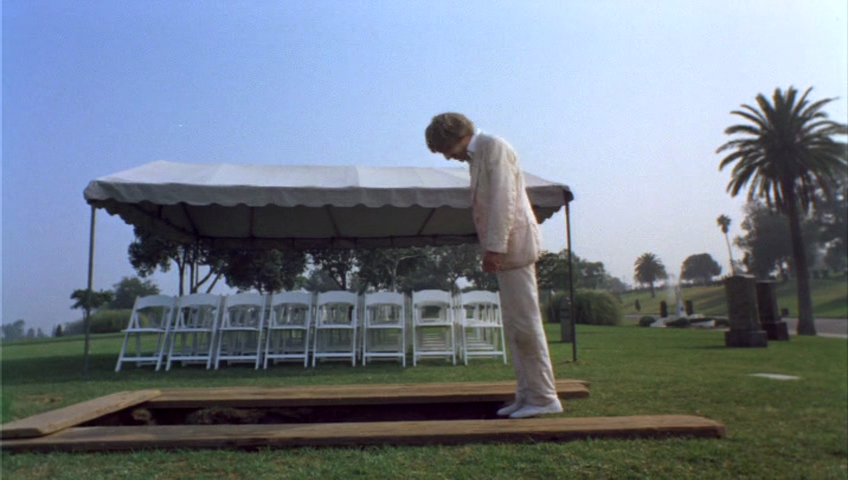
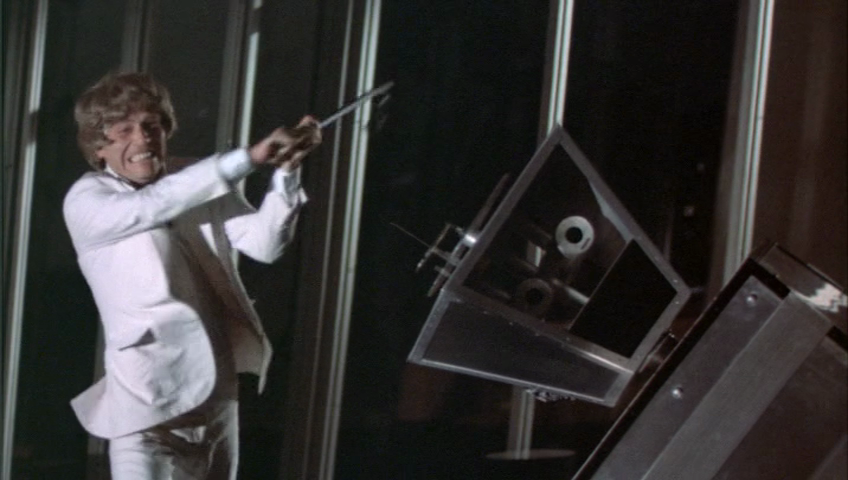

No comments:
Post a Comment